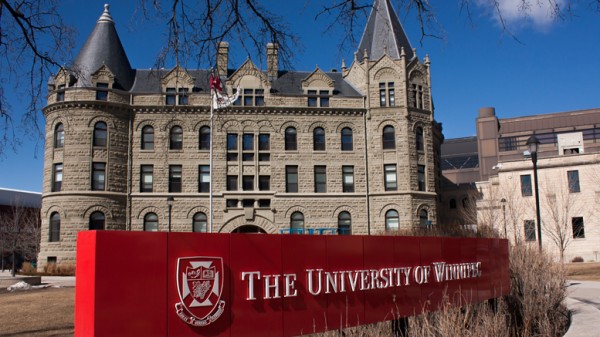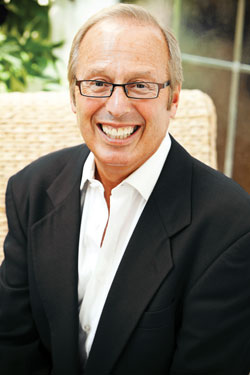The court of public opinion needs to be exorcised of the demons unleashed by the #MeToo movement.
The allegations of sexual assault levelled against Judge Brett Kavanaugh seem to be the talk of the town. It also provides an important insight into the limitations of #MeToo movement.
While the #MeToo movement has been an important conduit for victims of sexual assault that has seen millions of women join in the chorus of voices that refuse to be silent about sexual violence, there are some structural problems with the movement that must be resolved.
The #MeToo movement, as it is currently known across social media platforms, started Oct. 2017. Actor Alyssa Milano unknowingly borrowed and promoted the term from an activist group started nearly thirteen years ago by Tarana Burke. The goals of both the movement and the activist group are the same: to provide an outlet for those who experienced sexual assault to speak out and “expand the global conversation around sexual violence.”
This is a political movement that has been indispensable. However, the movement positions the perspective of the victim ahead of the defence of the accused and denies a fair assessment of reality as a result.
Recently, Christine Blasey Ford testified in front of the Senate judiciary committee, accusing Kavanaugh of sexually assaulting her in the summer of 1982. Three other women have since come forward with similar accusations.
Ford accused Kavanaugh of forcing her onto a bed, groping her and attempting to remove her clothing, all while “drunkenly laughing during the attack.” Kavanaugh denied Ford’s testimony, claiming he never attended the party.
Although the hearings and subsequent investigation led to no smoking gun and Kavanaugh came out of the hearings to be confirmed to a position on the U.S. Supreme Court, it is a pyrrhic victory.
Since the allegations have been made public, both Kavanaugh and his family have been the target of numerous death threats. His name has been permanently tarnished and will remain so regardless of the decision by the committee to elevate him to the highest court.
Even if an independent, non-partisan investigation cleared Kavanaugh of these allegations, his reputation would never recover.
Kavanaugh’s innocence in all of this has not been seriously considered. In the public eye, Ford is an undeniable victim of Kavanaugh. This presumption skips one crucial question: is she really a victim of Kavanaugh? Skipping this question paints Kavanaugh as guilty in the court of public opinion. Yet, Ford’s recollection of events is taken without considering the weight of evidence supporting Kavanaugh’s version of events.
The #MeToo movement’s emphasis on elevating the victim’s story above scrutiny derails a public debate about the merits of the claim.
In a case like Kavanaugh’s, there is already a platform for both parties to explain their version of what happened.
Moreover, the hearings and investigations by the media and FBI provide an evidentiary basis on which the public can base its opinion.
What stopped the Kavanaugh case from being fair was a result of the #MeToo movement’s call to prefer the version of events told by the accuser over those told by the accused. This prevented evidence from objectively being assessed.
A public hearing to enter in evidence helps achieve a closer and universal understanding of the objective circumstances of alleged sexual violence. All high-profile allegations of sexual violence should be afforded the same benefit.
The central hurdle remaining is reining in the structural imbalance in the court of public opinion caused by the #MeToo movement.
The public court of opinion should discard the call of the #MeToo movement to accept the version of reality as told by the accuser and instead employ a balance of probability.
In civil law, the probability of one party’s case only needs to be more probable than the other (balance of probability). This allows the proper addressing of the allegations and it also protects the accused from having their life ruined.
There is a balance that must be found in this difficult situation. While men’s reputations are at constant risk, it is important to provide a social environment where women feel safe to come forward in cases of sexual assault.
In that sense, the #MeToo movement has it right. When women’s allegations are immediately discredited or when women are scared into silence, it marginalizes the victims of sexual assault.
The goals of the #MeToo movement are commendable.
All women have the right to feel safe from sexual assault and in the terrible scenarios where women are victims of this kind of abuse, they have the right to feel safe in voicing what happened.
Nevertheless, evidence from the accused must be allowed to enter into the court of public opinion, with equal weight to that entered by the accuser, so an objective assessment might be obtained through a test of balance of probabilities.
Imagine it were your father or brother or uncle that were falsely accused. We owe it to the men in our lives to not publicly condemn them when it comes to unsubstantiated, unproven allegations, and we owe it to the women in our life to come down hard on men who are in fact sexual predators.
Reform the court of public opinion and bring in a standard of assessing proof that can help achieve both.





